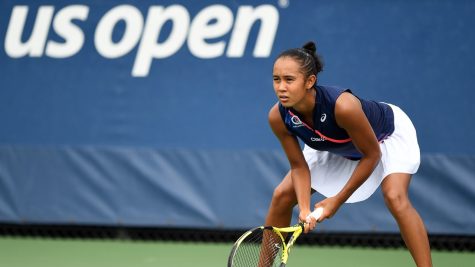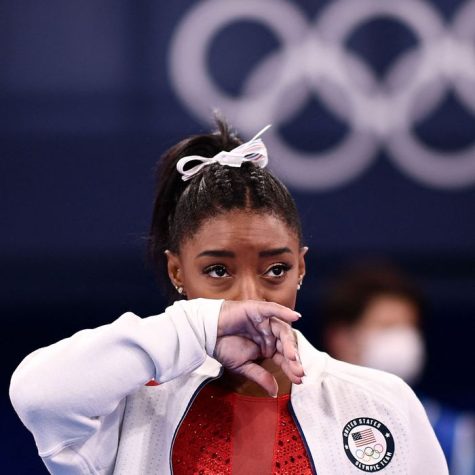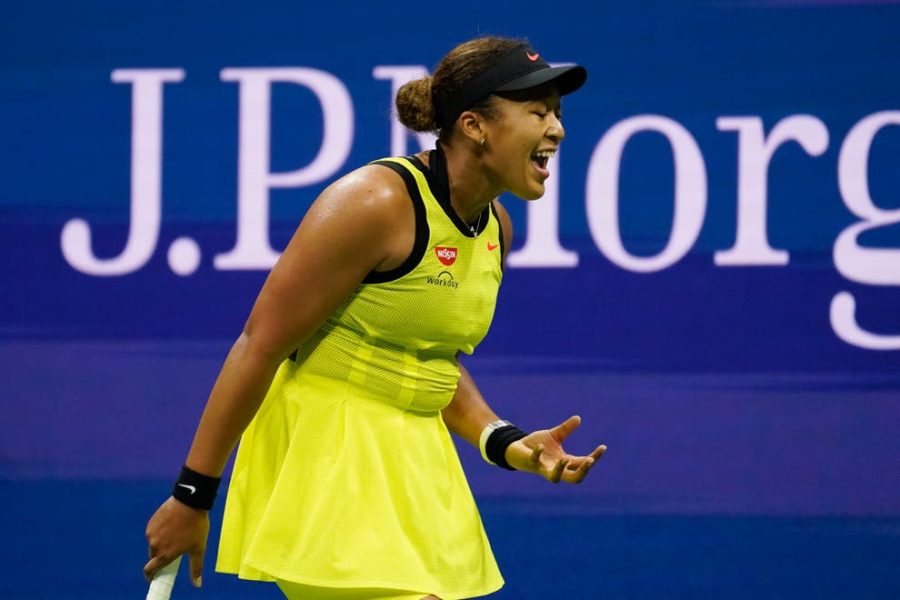“It’s OK not to be OK”: The Growing Conversation about Mental Health in Professional Sports
“For them to stand up and show female athletes that it’s ok to take care of yourself first, I think it’s huge and I love that that conversation is open.”
Photo Taken From Independent.co.uk
Naomi Osaka frustrated after loss against Leylah Fernandez in the 2021 U.S. Tennis Open. After winning the competition just the year before, Osaka’s loss came as a surprise to many fans and sports professionals.
After the recent Olympic Games and U.S. tennis Open, mental health’s role in professional sports has come into the spotlight. Superstar athletes Naomi Osaka and Simone Biles are leading this conversation after both deciding to take a step away from their respective sports following surprising losses and opt-outs.

Tennis player Naomi Osaka lost against up-and-coming 18-year-old Leylah Fernandez in the U.S. Open, a competition she had won just the year before.
“I think I’m going to take a break from playing for a while,” Osaka said in a press conference after the match. “I feel like for me, recently, when I win I don’t feel happy. I feel more like a relief. And then, when I lose, I feel very sad. I don’t think that’s normal.”
This statement further extended the topic of mental health in professional sports, but the topic originally reemerged during this year’s Olympic Games.
U.S. women’s gymnastics team star Simone Biles was expected to win up to six gold medals at this year’s Olympic Games, but her decision to opt-out of the team final and then the rest of her scheduled events destroyed those chances.
“It’s just something that took hold of me [where] your body and your mind tells you when enough is enough,” Biles said.
She is content with the decision she made despite the potential negative impacts it could have on her gymnastics career.
“I gave an outlet for athletes to speak up about their mental health and their well-being and learn that you can put yourself (as a person) first before the athlete.”
Sage Creek High School’s Athletic Director, Andrea Williams, shared her opinion on the actions of the two athletes.

“I think they were very brave and I applaud them for doing that,” Williams said. “They’ve worked their whole lives to be [at these competitions] and for them to prioritize their mental health…I think [that] was extremely brave.”
Williams is glad that the conversation about mental health in sports is being reintroduced and expanded on.
“I know that even before these two [restarted this conversation], Michael Phelps had been a huge advocate for mental health,” Williams said. “It is a conversation that has been going on, so it’s nice to see it restarted.”
Aside from a general conversation about athletes’ mental health, the decision of these two high-profile female competitors may have a huge impact on younger female athletes.
“I think it’s huge for [Sage Creek’s] female athletes to see [Simone Biles and Naomi Osaka] as role model[s] because I know that, sometimes…women [in sports] have to prove themselves a little bit more and they have to work a little bit harder, and we don’t want to be seen as weak.”
Williams believes that as women, stepping back from their sports was an even harder decision, but that it will have a huge impact on other athletes.
“For them to stand up and show female athletes that it’s okay to take care of yourself first, I think it’s huge and I love that that conversation is open.”
The decision of both Biles and Osaka to take a step away from their respective sports may seem surprising to some. Despite these worries, the potential of these actions to inspire their peers and future generations of athletes to highlight the importance of mental health is immense and holds huge promise.


